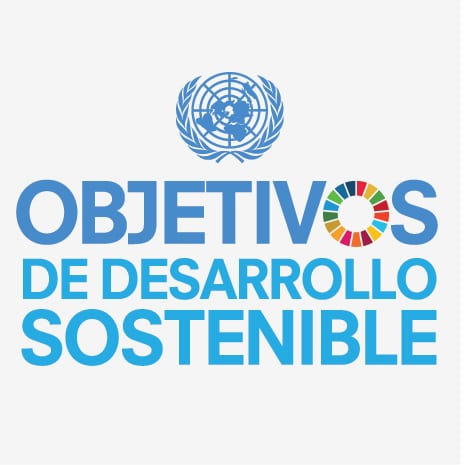 Vigilancia Tecnológica
Vigilancia Tecnológica
ADS seeking more recyclables as it turns trash into pipes
A whopping 515 million pounds of used detergent bottles, milk jugs and even carpet go into the plastic pipe, tanks and chambers made by Advanced Drainage Systems Inc. to manage storm and septic waste water.
Some 20 million pounds of the discarded plastic comes from communities near the Hillard, Ohio-based manufacturer, but it's only about half of what the company could buy from neighboring households and businesses if more recycling infrastructure was in place.
Founded in 1966, ADS uses both recycled and virgin high density polyethylene and polypropylene in its products that drain fields, hold stormwater and control erosion for the construction, municipal infrastructure and agricultural markets.
With nearly $1.5 billion in pipe sales, and total sales of just less than $2 billion, ADS is the second-largest pipe extruder in North America, according to Plastics News' latest ranking.
The publicly traded company's outlook is good with a strong order rate and backlog due to material conversion, a complete product offering and growth strategies. Sales are expected to increase 12-16 percent in fiscal year 2022 to $2.2 billion to $2.3 billion.
One of the growth strategies is to continue the 15-year scale-up of ADS' in-house recycling capabilities. The company has become the second-largest recycler of plastics in North America.
ADS turns post-consumer and post-industrial goods into pellets that are extruded into pipe, which are installed to prevent flooding and drainage problems. The pipes protect the environment, and at the end of their service life also can be recycled into something new.
The distinction puts ADS at the intersection of economic success and corporate responsibility when it comes to following sustainable business practices. The next steps are fraught with challenges, but there are opportunities, too, according to ADS officials, who are seeking more community, government and corporate partners.
To that end, ADS President and CEO Scott Barbour recently put out a call to central Ohio officials to collect more recyclables. The company buys 20 million pounds of discarded plastic containers from the Solid Waste Authority of Central Ohio, but it could use 30 million to 40 million pounds.
Barbour also is reminding other companies that ADS is buying scrap plastic. The post-industrial HDPE waste could come from bottle manufacturers, material recovery facilities, toy manufacturers, thermoformers and sheet manufacturers, plastic drum makers or telecommunications and power conduit.
In addition, ADS joined The Recycling Partnership and its Polypropylene Recycling Coalition, and company officials signed the America Recycles Pledge to work with the U.S. Environmental Protection Agency and other pledge partners toward the ambitious goal of increasing the national recycling rate to 50 percent by 2030.
"ADS as a company is making more of an effort to get engaged," Barbour said in a phone interview. "We want to move beyond recycling as an operational procurement activity to more of a strategic activity that helps broaden the resources supporting it. This is part of our evolution."
For SWACO, Barbour suggests looking at ways to make it easier for residents living in multiple-family housing like apartments and condos to recycle. These residents don't have access to a curbside recycling program. They must go to one of 50 free drop-off recycling locations in Franklin County.
The drop-off site accepts the same materials — household papers and cardboard; plastic bottles, tubs and jugs; metal cans; carton containers; and glass bottles and jars — but not the same convenience.
"Multifamily housing within the county doesn't have recycling capabilities. That cuts a quarter of the potential," Barbour said. "As a county, we're missing recyclable resources in the multifamily dwellings because we haven't made it easy or convenient."
The solutions aren't easy either, Barbour acknowledged, even when it comes to working with other plastics processors that have scrap HDPE.
"It's the same challenges," he said. "How do you get things conveniently recycled, put back into the recycling stream and then processed. That's the hot button."
Other plastics processors are working on it, too, like composite decking maker Trex Co. Inc., which has contests for schools, retailers and communities to collect polyethylene film bags and wraps. The plastic waste is combined with reclaimed wood and sawdust to produce Trex decking. Winning donors get composite park benches made from decking boards.
With $880 million in annual extrusion sales, Winchester, Va.-based Trex is the No. 6 pipe, profile and tubing producer in North America, according to Plastics News data.
The so-called NextTrex program was expanded beyond schools and community groups this year to include retailers. Trex is looking for new film sources on the heels of bag bans, bag fees and the consumer shift to online shopping during the pandemic.
ADS is looking for more recyclable plastic products to meet demand from increased construction activity and a long-awaited federal infrastructure program.
"There is clearly an increasing market for plastic recyclable materials from folks like us and the manufacturers of decking and packaged goods," Barbour said. "We must continue to line up the regulatory, logistical and community components."
Some 20 million pounds of the discarded plastic comes from communities near the Hillard, Ohio-based manufacturer, but it's only about half of what the company could buy from neighboring households and businesses if more recycling infrastructure was in place.
Founded in 1966, ADS uses both recycled and virgin high density polyethylene and polypropylene in its products that drain fields, hold stormwater and control erosion for the construction, municipal infrastructure and agricultural markets.
With nearly $1.5 billion in pipe sales, and total sales of just less than $2 billion, ADS is the second-largest pipe extruder in North America, according to Plastics News' latest ranking.
The publicly traded company's outlook is good with a strong order rate and backlog due to material conversion, a complete product offering and growth strategies. Sales are expected to increase 12-16 percent in fiscal year 2022 to $2.2 billion to $2.3 billion.
One of the growth strategies is to continue the 15-year scale-up of ADS' in-house recycling capabilities. The company has become the second-largest recycler of plastics in North America.
ADS turns post-consumer and post-industrial goods into pellets that are extruded into pipe, which are installed to prevent flooding and drainage problems. The pipes protect the environment, and at the end of their service life also can be recycled into something new.
The distinction puts ADS at the intersection of economic success and corporate responsibility when it comes to following sustainable business practices. The next steps are fraught with challenges, but there are opportunities, too, according to ADS officials, who are seeking more community, government and corporate partners.
To that end, ADS President and CEO Scott Barbour recently put out a call to central Ohio officials to collect more recyclables. The company buys 20 million pounds of discarded plastic containers from the Solid Waste Authority of Central Ohio, but it could use 30 million to 40 million pounds.
Barbour also is reminding other companies that ADS is buying scrap plastic. The post-industrial HDPE waste could come from bottle manufacturers, material recovery facilities, toy manufacturers, thermoformers and sheet manufacturers, plastic drum makers or telecommunications and power conduit.
In addition, ADS joined The Recycling Partnership and its Polypropylene Recycling Coalition, and company officials signed the America Recycles Pledge to work with the U.S. Environmental Protection Agency and other pledge partners toward the ambitious goal of increasing the national recycling rate to 50 percent by 2030.
"ADS as a company is making more of an effort to get engaged," Barbour said in a phone interview. "We want to move beyond recycling as an operational procurement activity to more of a strategic activity that helps broaden the resources supporting it. This is part of our evolution."
For SWACO, Barbour suggests looking at ways to make it easier for residents living in multiple-family housing like apartments and condos to recycle. These residents don't have access to a curbside recycling program. They must go to one of 50 free drop-off recycling locations in Franklin County.
The drop-off site accepts the same materials — household papers and cardboard; plastic bottles, tubs and jugs; metal cans; carton containers; and glass bottles and jars — but not the same convenience.
"Multifamily housing within the county doesn't have recycling capabilities. That cuts a quarter of the potential," Barbour said. "As a county, we're missing recyclable resources in the multifamily dwellings because we haven't made it easy or convenient."
The solutions aren't easy either, Barbour acknowledged, even when it comes to working with other plastics processors that have scrap HDPE.
"It's the same challenges," he said. "How do you get things conveniently recycled, put back into the recycling stream and then processed. That's the hot button."
Other plastics processors are working on it, too, like composite decking maker Trex Co. Inc., which has contests for schools, retailers and communities to collect polyethylene film bags and wraps. The plastic waste is combined with reclaimed wood and sawdust to produce Trex decking. Winning donors get composite park benches made from decking boards.
With $880 million in annual extrusion sales, Winchester, Va.-based Trex is the No. 6 pipe, profile and tubing producer in North America, according to Plastics News data.
The so-called NextTrex program was expanded beyond schools and community groups this year to include retailers. Trex is looking for new film sources on the heels of bag bans, bag fees and the consumer shift to online shopping during the pandemic.
ADS is looking for more recyclable plastic products to meet demand from increased construction activity and a long-awaited federal infrastructure program.
"There is clearly an increasing market for plastic recyclable materials from folks like us and the manufacturers of decking and packaged goods," Barbour said. "We must continue to line up the regulatory, logistical and community components."






